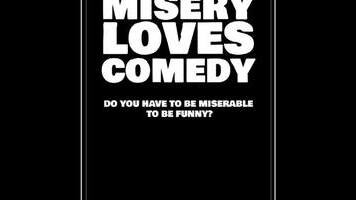Misery Loves Comedy asks whether the two things are always linked

The final question that Kevin Pollak asks his subjects in this talk-heavy, occasionally probing documentary is, “Do you have to be miserable to be funny?” Only those unfamiliar with the notion that great humor comes from pain—and it can’t be too many people watching a doc like Misery Loves Comedy—might be surprised by the answers, which range from “sort of” to “absolutely.”
But really, Pollak—a veteran stand-up and character actor himself—knows what kinds of answers he’s going to get before heading into the dozens of conversations that make up Misery. Still, he manages to cut together some truly insightful commentary from an impressive list of funny people: Judd Apatow, Amy Schumer, Jimmy Fallon, Larry David, Marc Maron, and many, many more offer frank looks at why they got into comedy in the first place and what drove them to continue. Though the stories are different—happy childhoods, miserable childhoods, shyness, extroversion—the twin through-lines are a deep desire for acceptance and the high that comes with commanding a room, making people laugh. More than one interviewee even puts it explicitly in terms of control: You know when the audience is going to laugh. You’ve got everyone exactly where you want them.
And then you get hit with laughter, and as Tom Hanks puts it, it’s “crack cocaine.” (He later compares it to crystal meth, though doesn’t mention whether he’s come by these comparisons firsthand.) To a person, these comedians are looking for a connection, some attention, and appreciation—which makes them, as Penn Jillette points out toward the end, just like everybody else, only they have microphones and spotlights.
So while there’s no single, monumental insight here—no a-ha moment that cracks the code of comedy—there are a ton of stories and opinions that comedy nerds should love. Maria Bamford talks about connecting with audiences after accidentally killing her pet; Paul F. Tompkins nails the comedian/audience dynamic in three sentences; Larry David relays his ballsy, unsuccessful first shot at the stage. Everybody has a story about bombing, and most everybody finds some therapeutic value in standing up and telling an audience about the shitty things they did, or the shitty things that happened to them, or the shitty things that other people do. That may not sound like a recipe for laughs, but laughs aren’t really what Misery Loves Comedy is after.